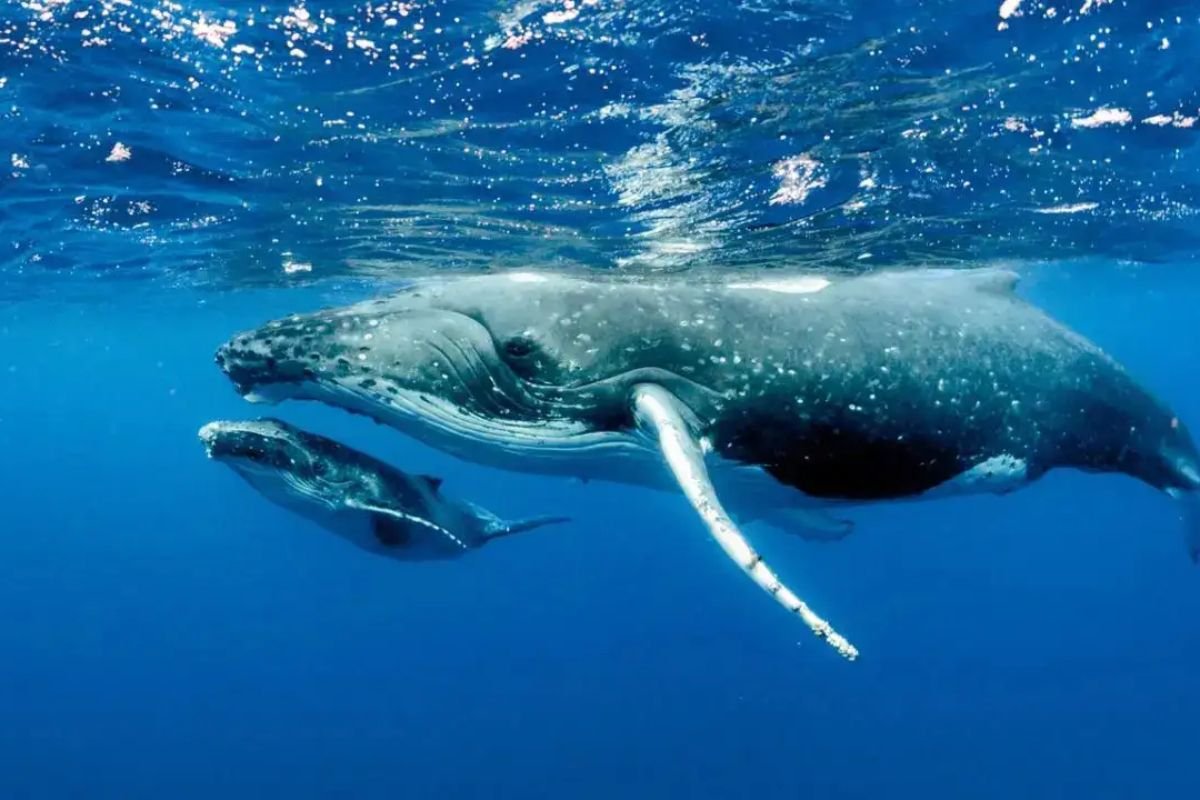In a troubling development for marine ecosystems, scientists have reported a sharp decline in blue whale vocalizations due to rising ocean temperatures and dwindling food sources. A study published in PLOS One this week reveals that the number of blue whale songs recorded off the U.S. West Coast has dropped by nearly 40% over the past six years. Researchers link this decline to prolonged marine heatwaves that have disrupted the food chain, particularly the availability of krill, the whales’ primary diet.
Underwater Recordings Reveal Startling Silence
Using underwater hydrophones, researchers from the Monterey Bay Aquarium Research Institute tracked seasonal and annual whale vocalizations between 2015 and 2021. While humpback whale songs remained consistent, the number of Blue Whale Vocalizations and fin whale calls significantly decreased. The findings suggest that the whales are vocalizing less due to stress and energy depletion caused by food scarcity.
Co-author and oceanographer John Ryan explained the situation starkly: “It’s like trying to sing while you’re starving.” When food is scarce, whales prioritize survival behaviors over communication, including the long-distance Blue Whale Vocalizations typically used for mating and navigation.
Heatwaves Disrupt Marine Food Chains
The root cause, according to the study, is a massive marine heatwave known as “The Blob,” which began in 2013 and persisted for several years. This warm water phenomenon spanned over 3,200 kilometers of the Pacific Ocean, increasing sea surface temperatures by over 4.5°F. The resulting conditions devastated krill and anchovy populations—critical prey for blue and fin whales.
Unlike humpback whales, which can feed on a broader range of prey, blue and fin whales are highly specialized krill feeders. The decline of krill, triggered by toxic algal blooms and altered ocean currents, led to severe nutritional stress for these marine giants. The ripple effects extend far beyond whale behavior, threatening the stability of the broader marine ecosystem.
Scientists Warn of Long-Term Ecological Impact
The authors warn that the situation could indicate a deeper, long-term ecological crisis. Marine heatwaves have increased in frequency and tripled in duration since the 1940s, leading to extended periods of ecosystem stress. “There are whole-ecosystem consequences of these marine heatwaves,” said Kelly Benoit-Bird, a marine biologist at the Monterey Bay Aquarium.
Whales serve as key indicators of ocean health, and their changing behavior is a stark signal of broader environmental disruptions. The researchers emphasize that continued warming and food shortages could further impair whale populations and reproduction rates, potentially leading to population declines.
Conclusion
The eerie silence of Blue Whale Vocalizations is not just a biological curiosity—it’s a warning bell for ocean health in a warming world. As climate change continues to intensify marine heatwaves, scientists are urging for increased global action to address rising ocean temperatures and protect fragile food webs. Without intervention, the silence of blue whales may become the norm rather than the exception.
Visit The Lifesciences Magazine For The Most Recent Information.
Source:







